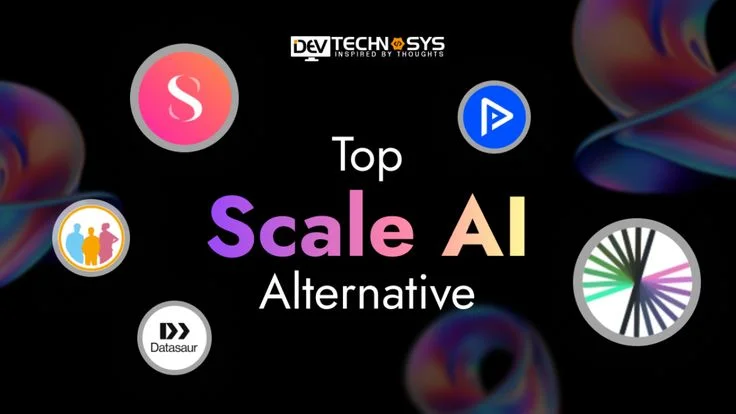Artificial Intelligence has become the backbone of digital transformation. Whether it’s automating repetitive tasks, boosting customer engagement, or analyzing complex datasets, AI platforms are redefining the way businesses operate.
In this article, we will dive into the best AI platforms available in 2025. From enterprise-grade solutions to beginner-friendly applications, you’ll discover how these platforms empower organizations and individuals to innovate, streamline processes, and stay ahead in a competitive marketplace.
Why Best AI Platforms Matter in 2025
The adoption of AI platforms is no longer optional it is a necessity. Companies face rapidly evolving digital environments, and only those leveraging advanced AI tools can maintain efficiency and growth.
Moreover, AI platforms integrate seamlessly with existing business systems. They deliver automation, predictive analytics, and smarter customer engagement. Therefore, choosing the right AI solution can directly influence a company’s profitability, productivity, and long-term success.
Key Features of the Best AI Platforms

When evaluating AI platforms, businesses should prioritize the following must-have features:
-
Scalability – The ability to grow with increasing data and workloads.
-
Integration – Smooth connectivity with CRMs, ERPs, and cloud systems.
-
Security – Compliance with data protection and privacy regulations.
-
User-Friendliness – Accessibility for both technical and non-technical users.
-
Customization – Flexibility to adapt to industry-specific needs.
By emphasizing these features, organizations ensure sustainable AI adoption and maximize ROI.
Top 7 Best AI Platforms in 2025
1. Google Cloud AI
As one of the leading solutions, Google Cloud AI offers cutting-edge machine learning APIs, natural language processing, and robust analytics. In addition, companies rely on it for predictive modeling, customer insights, and intelligent automation. Its scalability makes it highly valuable for enterprises with global operations.
2. Microsoft Azure AI
Microsoft Azure AI provides pre-built models, deep learning tools, and AI development frameworks. Furthermore, Azure Cognitive Services enhance customer support, image recognition, and language translation. Consequently, it stands out as a flexible platform that supports businesses of all sizes.
3. IBM Watson
IBM Watson is a pioneer in artificial intelligence. Its powerful natural language processing and machine learning capabilities make it especially useful in healthcare, finance, and retail. Moreover, Watson’s AI assistants boost customer service efficiency and decision-making accuracy.
4. Amazon Web Services (AWS) AI
AWS AI delivers a wide variety of tools ranging from chatbots to fraud detection systems. Additionally, its cloud-based infrastructure ensures scalability and adaptability. For example, many enterprises choose AWS AI to manage global operations securely and effectively.
5. OpenAI API
Best known for ChatGPT, the OpenAI API specializes in natural language generation and conversational AI. Businesses and developers integrate it to create chatbots, automate content, and improve customer interactions. Therefore, it is one of the most accessible platforms for small businesses and startups.
6. DataRobot
DataRobot focuses on automated machine learning (AutoML). It simplifies model creation, allowing even non-technical users to build predictive models quickly. Consequently, it is gaining traction in industries like banking, insurance, and retail analytics.
7. H2O.ai
H2O.ai is an open-source platform offering AutoML, deep learning, and cloud deployment options. In addition, it is highly popular among data scientists who value flexibility and transparency. Its cost-effectiveness makes it a strong choice for startups as well.
Benefits of Using the Best AI Platforms

-
Efficiency Gains – By automating repetitive tasks, companies reduce human error significantly.
-
Cost Savings – In addition, AI streamlines workflows and lowers operational expenses.
-
Smarter Decision-Making – Consequently, real-time analytics deliver actionable insights.
-
Customer Engagement – Furthermore, personalized services improve user satisfaction.
-
Innovation Power – As a result, organizations adopting AI maintain a clear competitive edge.
For example, according to a McKinsey report, businesses leveraging AI effectively have seen profit increases of up to 20%.
Challenges in Choosing the Best AI Platforms
Despite the benefits, businesses face several hurdles:
-
High upfront costs for enterprise-level AI tools.
-
Data privacy and cybersecurity concerns.
-
Limited availability of skilled AI professionals.
-
Integration issues with outdated systems.
Nevertheless, these challenges can be mitigated with proper planning, training, and vendor support.
Best AI Platforms for Different Needs

For Small Businesses
OpenAI and H2O.ai provide affordable, user-friendly solutions that do not require complex infrastructure.
For Enterprises
Google Cloud AI, AWS, and Microsoft Azure AI are ideal for global operations due to their scalability and security.
For Specialized Industries
IBM Watson supports healthcare and financial services with its advanced analytics. Meanwhile, DataRobot excels in predictive analytics for insurance and banking.
How to Select the Right AI Platform
To select the best AI platform, businesses should:
-
Define objectives and expected outcomes.
-
Compare scalability, features, and pricing.
-
Test demo versions or free trials.
-
Confirm compliance with security regulations.
-
Provide training to ensure smooth adoption.
By following these steps, organizations can unlock the true potential of artificial intelligence.
FAQs on Best AI Platforms
Q1. What is the most popular AI platform in 2025?
Google Cloud AI and Microsoft Azure AI remain the most widely adopted enterprise solutions.
Q2. Which AI platform is best for beginners?
H2O.ai and OpenAI are excellent for beginners due to their user-friendly design and affordability.
Q3. Are AI platforms safe to use?
Yes, as long as businesses choose providers that comply with international data privacy standards.
Q4. Can small businesses afford AI platforms?
Absolutely. Many AI platforms offer flexible pricing tailored to startups and SMEs.
Q5. What industries benefit most from AI platforms?
Healthcare, finance, retail, and manufacturing achieve the highest gains from AI adoption.
Conclusion: Choosing the Best AI Platforms in 2025
The best AI platforms are more than just tools; they are strategic investments driving efficiency and innovation. Moreover, they empower businesses to adapt quickly in competitive markets. In addition, these platforms simplify workflows, reduce costs, and enhance customer engagement. From Google Cloud AI to OpenAI, each offers unique benefits suitable for different industries and company sizes.
Furthermore, choosing wisely ensures long-term scalability. However, businesses must evaluate security, pricing, and integration capabilities carefully. Therefore, aligning a platform with business goals becomes essential. As a result, companies adopting the right AI platform in 2025 will remain innovative, profitable, and competitive in the digital era. Ultimately, success lies in leveraging AI not just as technology but as a growth strategy.










